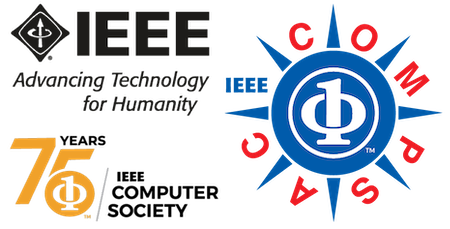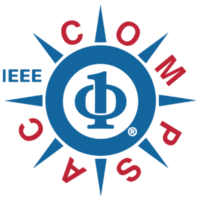The 4th IEEE International Workshop on Smart Computing & Applications (SCA 2021)
Call for Papers
Computer technologies are producing profound changes in society. As COMPSAC 2021 focus on technical aspects related to the” Intelligent and Resilient Computing for a Collaborative World,” the SCA 2021 workshop aims to foster cooperation among software practitioners and researchers to exchange the latest industrial experience and research ideas on Smart Computing and Applications related issues.
The area of processes and services engineering is a very attractive field for smart computing and applications research. Smart computing and applications are those applications that incorporate data-driven, actionable insights into the user experience. Insights of delivered in context as features in applications that enable users to more efficiently complete a desired task or action.
Smart computing and application become a popular paradigm for both consumer facing and employee facing.
SCA 2021 will address the technical challenges facing technologists who are developing and deploying these smart systems and applications.
Researchers and practitioners all over the world, from both academia and industry, working in the areas of smart computing and application are invited to discuss state of the art solutions, novel issues, recent developments, applications, methodologies, techniques, experience reports, and tools for the development and use of smart computing and application. Topics of interest include, but are not limited to, the following:
- Design and development of Smart computing and applications.
- Software Engineering of Smart computing and applications.
- Tool Set Design for Smart computing and applications.
- Smart computing and application development experience.
- Trust, security, and privacy in Smart computing and application systems.
- Verification, validation and testing of Smart computing and applications
- Other research issues about Smart computing and applications
Important Dates
Workshop papers due: 21 April 1 May 2021 (UPDATED)
Workshop paper notifications: 15 May 2021
Camera-ready and registration due: 31 May 2021
Authors are invited to submit original, unpublished research work, as well as industrial practice reports. Simultaneous submission to other publication venues is not permitted. In accordance with IEEE policy, submitted manuscripts will be checked for plagiarism. Instances of alleged misconduct will be handled according to the IEEE Publication Services and Product Board Operations Manual.
Please note that in order to ensure the fairness of the review process, COMPSAC follows the double-blind review procedure. Therefore we kindly ask authors to remove their names, affiliations and contacts from the header of their papers in the review version. Please also redact all references to authors’ names, affiliations or prior works from the paper when submitting papers for review. Once accepted, authors can then include their names, affiliations and contacts in the camera-ready revision of the paper, and put the references to their prior works back.
Formatting
Workshop papers are limited to 6 pages. Page limits are inclusive of tables, figures, appendices, and references. Workshop papers can add an additional 2 pages with additional page charges ($250USD/page).
Paper Templates
IEEE Paper templates are available in MS Word 2003 and LaTex. All submissions must use US 8.5×11 letter page format.
Note: If the submission link does not appear on EasyChair after logging-in, please click the above button again.
Workshop Organizers
William Cheng-Chung Chu
Department of Computer Science, Tunghai University, Taiwan
Email: cchu@thu.edu.tw
Chih-Hung Chang
College of Computing and Informatics, Providence University, Taiwan
Email: ch.chang@gm.pu.edu.tw
Program Committee
Sheikh Iqbal Ahamed, Marquette University, USA
Osman Gani, Miami University, USA
Nien-Lin Hsueh, Feng Chia University, Taiwan
Chin-Yu Huang, National Tsing Hua University, Taiwan
Che-Lun Hung, National Yang-Ming University, Taiwan
P. Kuppusamy, Madanapalle Institute of Technology & Science, India
Wen-Tin Lee, National Kaohsiung Normal University, Taiwan
Zhijun Liu, Providence University, Taiwan
Shang-Pin Ma, National Taiwan Ocean University, Taiwan
Geyong Min, University of Exeter, UK
Rajesh Subramanyan, Siements Healthcare, USA
Chuan Yi Tang, Providence University, Taiwan
Yin-Te Tasi, Providence University, Taiwan
Feng-Jian Wang, National Chiao Tung University, Taiwan
W. Eric Wong, University of Texas at Dallas, USA
Dianxiang Xu, Boise State University, USA
Hongji Yang, University of Leicester, UK
Chao-Tung Yang, Tunghai University, Taiwan
I-Ling Yen, University of Texas at Dallas, USA
Hong Zhu, Oxford Brookes University, UK
Yan Zhu, University of Science and Technology Beijing, China

